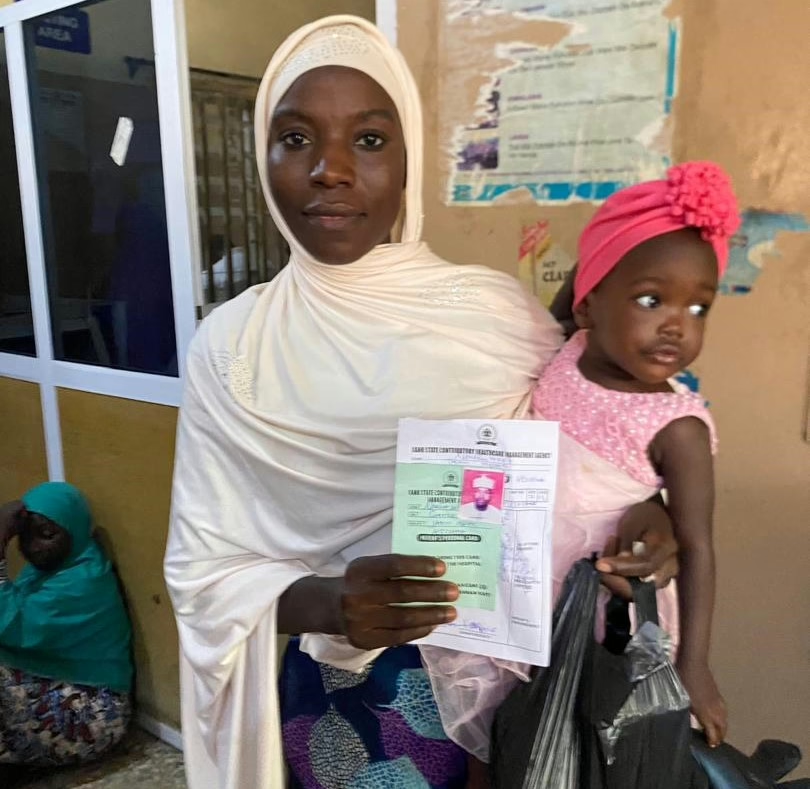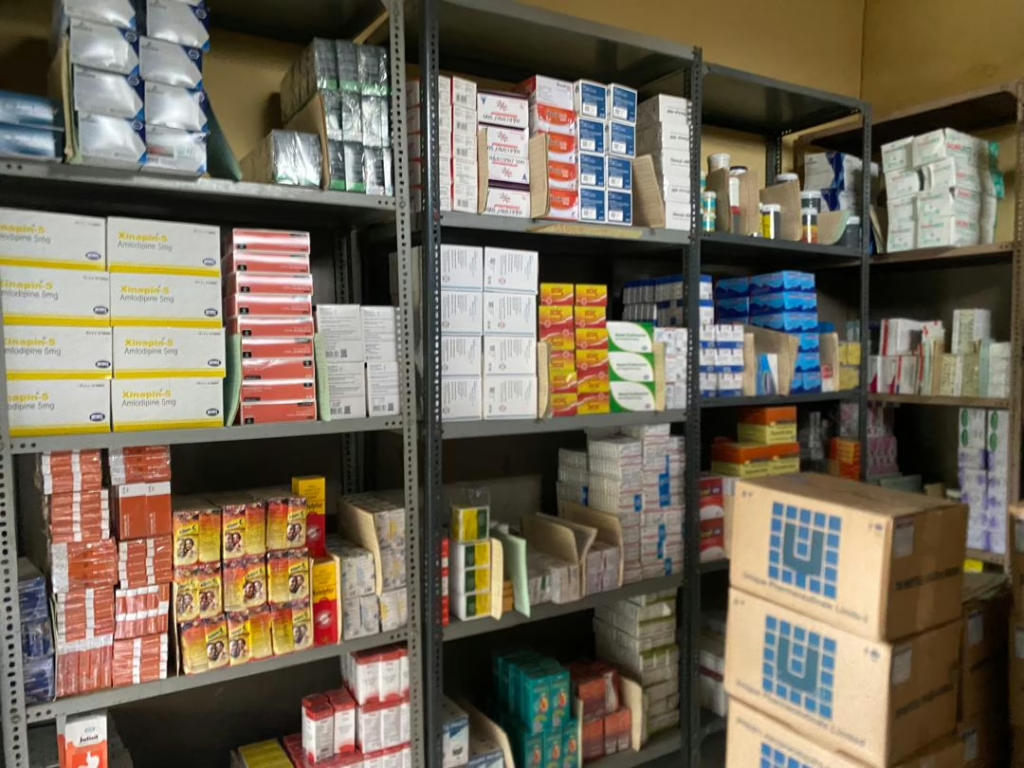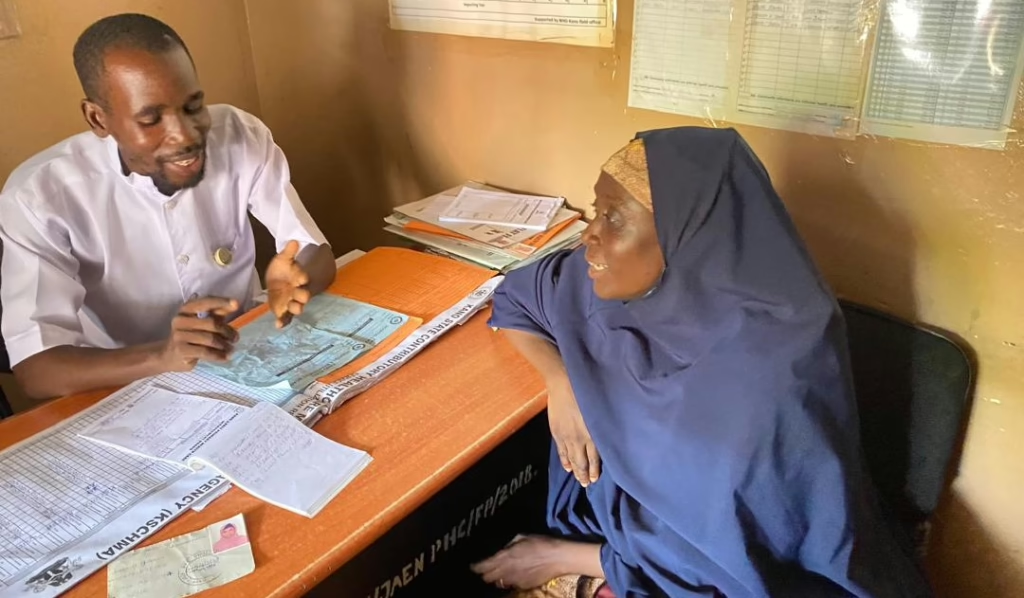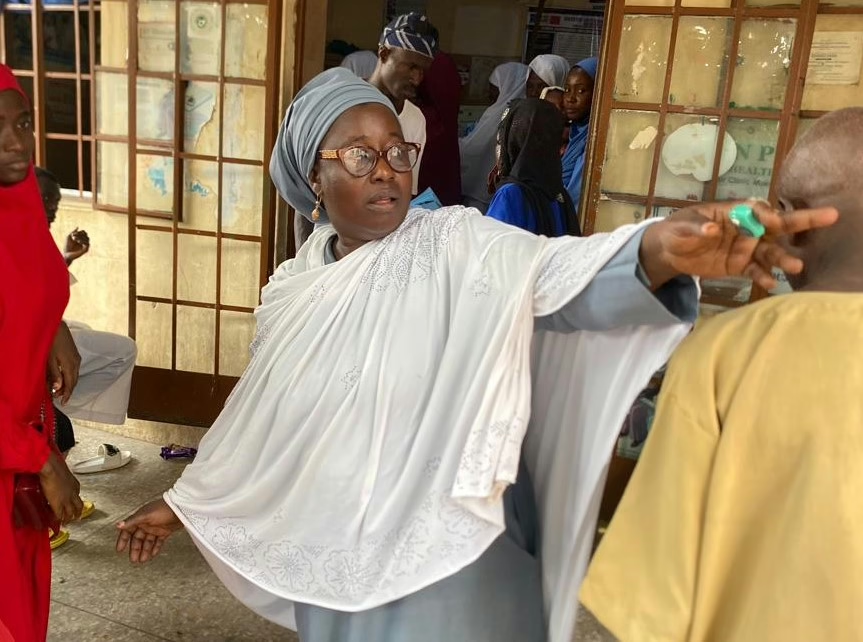For many families in Kano State, healthcare was once a heavy burden, an expense so daunting that it often meant choosing between survival and financial ruin.
Today, the Kano State Contributory Healthcare Management Agency (KSCHMA) is rewriting that story with its healthcare scheme.
Fear, debt, and uncertainty are steadily giving way to relief, dignity, and renewed confidence in the healthcare system.
The contributory scheme pools resources through regular contributions from individuals, employers, or both.
These funds are then used to guarantee access to essential healthcare services.
In Kano, the scheme is gradually reshaping healthcare delivery by reducing out-of-pocket costs, shortening waiting times, and ensuring access to drugs and diagnostics for families.
KSCHMA explained that the contributory scheme is built around three major objectives to ensure all residents benefit from effective and affordable healthcare services (Universal Access), to shield families from catastrophic medical expenses (Financial Protection), and to promote fair distribution of healthcare costs across all income groups (Equity in Healthcare).
The agency reaffirmed its commitment to making healthcare more accessible, particularly for vulnerable populations, by strengthening facilities across the state and ensuring that no resident is left behind.
From Fear to Relief: Amira’s Story
Before joining the KSCHMA, Amira Ibrahim, a resident of Gaida in Kumbotso LGA, lived in constant fear of falling sick.
Her family relied on traditional herbs, not out of preference but necessity.
Amira explains how a traditional herb for malaria is prepared.

“We collect fresh leaves from Mango, Orange, and Neem trees, which are carefully washed and thoroughly boiled to extract their medicinal properties.
“The steam from the boiling mixture is then used by the patient for inhalation, while the decoction is taken regularly as a drink until relief from malaria symptoms is achieved.
“This traditional remedy or concoction has been passed down through generations and is still commonly practiced in rural communities where access to modern healthcare and antimalarial drugs is limited.
“We know the concoctions sometimes could be harmful, but we had no option because we could not afford the huge out-of-pocket payment.
“Last year, my child developed a fever and suddenly began bleeding uncontrollably.
“My husband and I were terrified. We had no money, yet we had to spend everything we didn’t plan for. We even borrowed to survive,” she told Stallion Times.
For Amira, those days were defined by uncertainty and anxiety. But since her family enrolled with KSCHMA, life has taken a positive turn.
“The hospital we selected is Ja’en Primary Health Centre in Gwale Local Government Area, because we live in a section there.
“Now, I can confidently walk into the health facility and get care without worrying about the cost. We even save money for school fees and other needs,” she said with relief.
How the Scheme Works
Enrollment in the Healthcare Scheme at KSCHMA is open to all residents in different categories.
Formal sector employees of government, organized private sector, join through payroll deductions, with coverage extending to their spouse and up to four children. Students and retirees join through the contributory healthcare program.
Informal sector workers, like traders, individuals, and artisans, enroll through community-based contributory healthcare programs, or the vital contributor(s) healthcare program designed for key contributors in the informal sector.
And there is the constituency contributory healthcare program for specific groups within the community.
The Vulnerable groups, including people with disabilities, pregnant women, and children under five, the aged (70 years and above), are enrolled free or under equity arrangements, or the Basic Health Care Provision Funds Program (BHCPF), which is a part of the equity program that provides basic healthcare services.
All of these programs pool contributions to provide affordable and accessible healthcare services to all residents of Kano State, protecting them from financial hardship.
Registration can be done via self-service portal https://mykschma.org/ or designated centers, after which beneficiaries select an accredited health facility.
Once enrolled, they and their dependents can access a broad range of services without paying at the point of care.
Beneficiaries Speak
For Hassan Yahaya, a resident of Ja’en, the scheme has been life-changing.
He recalled waiting five hours to see a Doctor in 2024, only to face the crushing cost of drugs afterward.
“Most times, I had no choice but to take loans for medicines. But now, things are different.
Yahaya joined the contributory health scheme through the online portal.
According to him, the portal is user-friendly, and the registration process was simple for him.
Since I enrolled in 2023, I have been enjoying healthcare services at an affordable cost, he told Stallion Times

“Recently, I paid just 200.00 Naira for treatment. Waiting times are shorter, and I’m treated with dignity. This has restored my confidence in the healthcare system.”
Similarly, Bilkisu Sani of the Sani Mai Nagge section in Gwale Local Government Area has, since August 2024, been benefiting from the scheme through her husband, a civil servant with the state government.
“I used to spend up to 10,000.00 Naira on drugs during hospital visits.
“Now I spend 2,000.00 Naira or less, and sometimes nothing at all,” she disclosed.

A New Healthcare Culture
Healthcare workers also attest to the impact of the KSCHMA health scheme.
Hadiza Aliyu is the Officer in Charge at Ja’en Primary Healthcare facility (PHC) in Gwale.
Patients under the KSCHMA health scheme are treated with care; we don’t have cases of patients being maltreated by a health worker, because we are promoting a transformed community attitude toward medical care.
She, however, said she cannot ascertain the exact number of KSCHMA enrollees attached to the PHC.
“Before, many people avoided hospitals due to cost, resorting to self-medication or harmful concoctions.
“Now, we see more families willing to enroll. People who never stepped into a hospital now come confidently, knowing cost is no longer a barrier,” she explained.

Closing the gaps
Aminu Turaki is KSCHMA spokesperson. He told Stallion Times that some enrollees do report difficulties in accessing services, particularly the availability of medicines and referrals.
According to him, shortages of essential medicines are a major concern of the agency.
“With more people enrolling in the scheme, the pressure on available medicine can sometimes be very high, leading to temporary out-of-stock situations,” Turaki explained.
He further acknowledged that some beneficiaries had complained about referral processes, especially in cases where they were directed to higher-level facilities that could not provide the required care.
Turaki described these challenges as signs of the scheme’s rapid growth in enrollment.
He assured that KSCHMA had introduced supportive supervision measures to address medicine stock-outs, while a data validation exercise is ongoing to resolve referral-related issues to strengthen service delivery.
A System Restoring Hope
With KSCHMA, families across Kano are no longer forced to choose between health and hardship.
For beneficiaries like Amira, Yahaya, and Bilkisu, the scheme is more than a policy; it’s a lifeline that is restoring trust, dignity, and hope in the healthcare system.
The structured healthcare services offered by KSCHMA include the primary healthcare facilities, which serve as the first point of contact through PHCs and clinics.
The secondary healthcare facilities, such as General Hospitals and Specialist Hospitals, which handle referrals from primary facilities, and the tertiary healthcare facilities, which provide advanced services on referral from lower levels, including teaching hospitals like the Mallam Aminu Kano Teaching Hospital.
At the heart of the scheme is the Basic Minimum Package (BMP), which ensures access to essential primary, secondary, and referral services. Residents also have the option of choosing add-on packages tailored to specific needs.
These include BMP + HIV/AIDS, covering treatment and management of HIV/AIDS, and BMP + TB, which includes tuberculosis treatment and control.
Others are BMP + Family Planning, which provides access to family planning services.
Stallion Times findings show that KSCHMA, in partnership with the National Health Insurance Authority (NHIA), is carrying out the reaccreditation of 484 PHCs across all 44 Local Government Areas.
The exercise aims to align the facilities with national standards and improve healthcare delivery at the grassroots, including hard-to-reach communities.
It is also designed to strengthen the capacity of rural and underserved PHCs to provide continuous, round-the-clock care.
KSCHMA regularly holds town hall meetings with enrollees in the urban areas, including those from rural areas, to gather feedback on service delivery challenges such as drug supply and referral processes.
KSCHMA – “Your health, your right – enroll today!”

